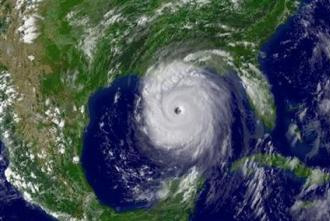 |
 |
 |
 News from Around the Americas | July 2007 News from Around the Americas | July 2007  
Forecaster Cuts 2007 Hurricane Outlook
 Reuters Reuters
go to original


| | This National Oceanographic and Atmospheric Administration satellite image, taken August 28, 2005 shows Hurricane Katrina as the storm's outer bands lashed the Gulf Coast the day before landfall. The 2007 hurricane season may be less severe than forecast due to cooler-than-expected water temperatures in the tropical Atlantic, private forecaster WSI Corp said on Tuesday. (Reuters/NOAA) |
The 2007 hurricane season may be less severe than forecast due to cooler-than-expected water temperatures in the tropical Atlantic, private forecaster WSI Corp said on Tuesday.

The season will bring 14 named storms, of which six will become hurricanes and three will become major hurricanes, WSI said in its revised outlook. WSI had previously expected 15 named storms of which eight would become hurricanes and four would become major hurricanes.

"Because the ocean temperatures have not yet rebounded from the significant drop in late spring, we have decided to reduce our forecast numbers slightly," said Todd Crawford, a WSI seasonal forecaster.

The energy and insurance industries are keenly watching the 2007 storm season after the record damage caused by hurricanes two years ago.

During the 2005 season, hurricanes Katrina and Rita devastated parts of the U.S. Gulf Coast and temporarily knocked out a quarter of U.S. crude and fuel production, sending energy prices to then-record highs.

WSI's Crawford added that wind conditions due to the lack of an El Nino event were less conducive to formation of tropical storms.

Despite the downgraded forecast, WSI still expects the 2007 season to be more active than last year, and added that storm-weary parts of the Gulf Coast could still be hit.

"We feel the general threat to the western Gulf is reduced slightly, with a corresponding increase in the threat to the eastern Gulf and Florida," Crawford said. | 
 | |
 |



